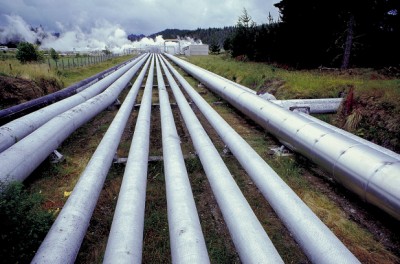Athens Defies Washington: Greece to Join Russia’s Turkish Stream Pipeline Project

Plans call for it to supply natural gas from Russia through Turkey, Greece, Macedonia, Serbia and Hungary – bypassing Ukraine.
Moscow’s original South Stream project was scheduled to transit through Bulgaria. US-manipulated destabilization blocked it.
Washington tried the same stunt in Macedonia – attempted color revolution destabilization to replace its government with one it favors – so far with no success.
It pressured Greece to stick with a Western-backed Trans-Adriatic Pipeline (TAP) instead of the Turkish Stream.
State Department Special Envoy and Coordinator for International Energy Affairs Amos Hochstein stated “Turkish Stream doesn’t exist.”
“There is no consortium to build it. There is no agreement to build it. So let’s put that to the side, and wait until there’s some movement on that and see if that’s relevant or not relevant and in the meantime focus on what’s important – the pipeline we already agreed to, that Greece already agreed to.”
Greek Energy Minister Panagoitis Lafazanis responded saying “(w)e are backing (Turkish Stream) because” it’s a better deal for Athens.
Earlier in May, Putin told Greek Prime Minister Alexis Tsipras Russia will consider providing financial support for Greek companies joining the project.
Tsipras confirmed his government’s willingness to participate. It’ll make Greece an important European gas distribution center – earning lucrative transit fees, providing a badly needed economic boost and revenues to service debt.
Last December, Gazprom’s CEO Aleksey Miller announced plans to construct Turkish Stream – with an annual capacity of 63 billion cubic meters for European markets.
On June 1, Tass reported Greek plans to sign a Turkish Stream memorandum of support at the St. Petersburg International Economic Forum (SPIEF-2015) scheduled for June 18 – 20. It’s held annually under the auspices of the President of the Russian Federation.
“It gathers the leading decision-makers of the emerging economic powers to identify and deliberate the key challenges facing Russia, emerging markets, and the world at large, while engaging communities to find common purpose and establish frameworks to forge solutions which will drive the growth and stability agenda.”
Lafazanis said “(a)s far as the economic forum to be held in St. Petersburg is concerned, right there we will try to sign an agreement, a so-called ‘memorandum’ on the political support of the said gas pipeline between Greece and Russia. We will be proactively drafting a document containing a provision on the political support…”
According to Russia’s permanent EU envoy Vladimir Chizhov:
“I believe this project has a fairly good chance to become the basis for gas supply not only in the Balkan region but also for the whole of Europe.”
Gazprom and Turkey’s Botas signed a memorandum of understanding last December on building the pipeline’s offshore section across the Black Sea.
Gazprom Russkaya will supervise pipeline construction. Despite US-orchestrated attempted internal destabilization in Macedonia for regime change and to subvert the project, Prime Minister Nicola Gruevski said:
“Our position is that when Brussels and Moscow reach an agreement on this project, we would take part in it.”
“Our eyes are set on the Euro-Atlantic community, and we make decisions of strategic importance on the basis of this goal.”
Policies relying on carrots, not sticks, have a better chance for longterm success – a lesson Washington never internalized.

